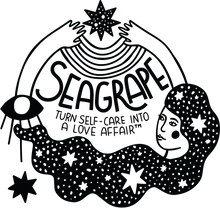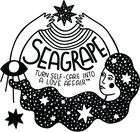Witchcraft and Cultural Appropriation: An Open Letter to Authors, Publishers, and Readers of Magical Books
Welcome, witch! If you've landed here, you probably have your eye on, or just purchased a brand new magical book, and you're curious how you can approach this witchy read with the tools you need to discern helpful information from harmful information. Maybe you started flipping through your new book and discovered a passage encouraging you to burn white sage, feel confused about the author's inclusion of the Chakra system in a beginner's guide to tarot, or found a racial slur floating through the section on fortune telling. If you feel concerned, disappointed, outraged, or disoriented, that's okay. Unfortunately, these things happen more then often then you'd think — but we're here to help offer some personal reflections form the shop witches as we navigate the same confusion and disappointment as you.
This blog is a living resource, and a shout into the void (because let's be real, not many publishers are making an effort to do this work) letting magical folks know what to do when they encounter culturally appropriative information, culturally decontextualized information, and outright harmful information in the magical books they love. On this page, you'll find guidance for engaging critically with books that may contain misinformation related to the topics of witchcraft and magic, steps to take when you find culturally appropriative material in a book, and resources to consult in an effort to cultivate discernment and reduce harm. And, if you have more resources to add to this community effort, please don't hesitate to shoot us an email at info@seagrapeapothecary.com
This is also an open letter to authors, editors, and publishing professionals as a whole: we wish we didn't need this resource to exist, but we hope it reaches you! As a small, queer-owned business serving a community of diverse magical folks, we want to ensure the books we carry in our store reflect our values and our commitment to creating a safer space. When we order a new release to the store and find it riddled with culturally appropriative information, it disappoints us just as much as it disappoints our customers.
What to Do First When You Find Culturally Appropriative, Harmful, or Just Plain Weird Information In a Book
Before anything else, assess how you're feeling in your body. If you just made the discovery that the author of your new book believes they're a reincarnation of a witch who was burned in the Salem witch trials, you're probably (rightfully) feeling a little wigged out. Bring some curiosity and gentleness to your emotional state; are you agitated, anxious, or just tired AF? We get it. Go brew yourself a cup of tea to soothe the brain weasels and come back to the matter at hand when you're feeling grounded.
Doing Inventory
Now that you've got your tea in hand, it's time to do inventory. Grab a pack of sticky notes and a pen, and put your witchy librarian hat on!
Taking inventory looks like skimming through your book for misinformation, culturally appropriative materials, closed practices being used outside of their cultural context, and other red flags. If you're a complete beginner witch and you're not sure what you should be looking out for, have no fear! Here's a short list of the most common red flags we see in books targeted towards beginner witches:
-
The author divides magic into Black magic and White; Black magic is baneful, while White magic is benefic (AKA, "Black bad, white good")
-
Non-Indigenous author uses the language "smudging" or "smudge sticks" to refer to the practice of burning bundles of cleansing herbs (usually white sage)
-
Offers guidance for working with deities and spirits from closed practices like Voodoo/Vodun, curanderismo, or Santería
-
Uses hierarchical, polarized language for magic or energy work; high versus low vibrations, higher realms versus lower realms, etc.
-
Explores Tarot without honoring Cartomancy's cultural roots in Romani history
-
Uses the slur "gypsy" to describe Romani people
-
Assumes the reader is a cisgender woman, and ascribes unique power to the cisgender female witch (excluding TGNC witches from the picture)
As you skim your book, leave sticky notes wherever you find potentially misleading or harmful information — write a brief note about why this information stuck out to you so you remember when you come back to it later.
Your feelings are valid, sweet witch. And, we can still do the work.
After taking inventory, your book might have a small army of sticky notes peeking out the edges. Maybe you're feeling like this book was a waste of your money, and you're starting to wonder if you'll ever be able to learn about magic and witchcraft without having to think about cultural appropriation. Maybe you've started to doom-spiral, and you're realizing how much of what you thought you knew about magic just isn't true. Hell, maybe you're feeling tempted to throw all of those sticky notes in the trash and pretend cultural appropriation doesn't exist, and go on with your merry day (you wouldn't be the first!)
If any of the above resonates, take another deep breath.
Thinking critically about the books and authors we trust can seem like a thankless project, especially when we're feeling indignant about using our precious time and energy to root out problems we don't feel responsible for. But here's the thing: we are responsible for these problems, personally and collectively. When we allow harm to be perpetuated and cultural appropriation to continue without disruption, we become complicit in a larger project to discourage accountability to our communities, disempower a strong collective, and erode critical thinking skills across the board.
Remember, witch: the work of combatting cultural appropriation and misinformation isn't done in a vacuum. We're in this together!
Taking What Resonates, Leaving What Doesn't
We know all of this has a tendency to put a damper on the mood, so now for a bit of good news: just because you've found potentially harmful information in your new book doesn't mean you need to throw the whole thing in the trash, return it to the bookstore, or curse the author's family line.
If you've found something of value in this new book of yours, take what resonates and leave what doesn't.
A note: taking what resonates and leaving what doesn't is not a permission slip to ignore culturally appropriative or harmful material, deny its existence, or defend your fierce support for a serially problematic author and their failure to do their own research. There are implications and complexities that deserve to be examined when we find value in books that have done harm, and you should be willing to ask yourself a few questions before you get too comfortable:
-
How has this author's decision to include culturally appropriative material shaped or influenced the other material included in this book?
-
What effect has the author's own privilege, identity, and experience had on the information presented, and the way in which this information is presented?
-
How do I honor myself by holding myself accountable to continuing education around this topic?
-
How can I educate others in my community so that this harm is not perpetuated, taking into account my own capacity and the knowledge that I can't do it all?
These are just a few questions to get you started; by all means, use these prompts as a jumping off point for some reflective journaling or bring them to your book club so you can reflect on them as a group! Talking about what you liked, and didn't like in a text opens the doors for community resource sharing, further book recommendations, and even movements to write the author or publisher an open letter!
Reaching Out to Publishers About Problematic Books
If you're wondering what you can do to make a dent in changing culturally appropriative or otherwise harmful books from being published and spreading disinformation, this section is for you!
Magic and witchcraft is experiencing a mass resurgence in the world of publishing right now; most major retailers carrying books offer a section on witchcraft and spirituality, and publishers are cranking out new titles as fast as authors can write them. It's a hot market, and unfortunately, it means processes like sensitivity reading and fact-checking (where issues like cultural appropriation are most likely to be caught and corrected) are being de-prioritized to maximize profit. Some publishers are unaware their books contain culturally appropriative material; others are fully aware, and have opted to continue publishing this material because they know it sells.
More than ever before, it's vital that you reach out to publishers (and authors, for that matter!) and hold them accountable for the harm their booklist is perpetuating. Below, you'll find a very simple email template for contacting publishers — feel free to copy and paste, edit, or otherwise re-purpose this template to meet your needs!
Subject: Concern about culturally appropriative material in your publication
"Dear [Name of Publishing House],
In the spirit of accountability, I'm reaching out to inform you that one of your books, [Book Title by Author's Name], contains [culturally appropriative material / misinformation / a slur, etc.]
I'm sharing this discovery in an effort to break the cycle of harm caused by [cultural appropriation / misinformation / etc.] and in the hopes that future publications from [name of Publishing House] will be given a closer and more culturally aware editorial review.
Sincerely,
Your Name
Additional Resources to Consider
The issue of cultural appropriation in the witchcraft community is one we hold near and dear, and we hope reading this page has encouraged you to delve deeper, commit to self-reflection, and hold your beloved authors and publishers accountable for the work they put out into the world.
Below, we've compiled a brief list of resources for magical folks hoping to cultivate discernment and critical thinking, counteract misinformation, and divest from culturally insensitive and appropriative frameworks for engaging with magic and witchcraft. This list is still actively growing, and is by no means complete or exhaustive!
In the spirit of discernment, we encourage you to honor these resources and their authors by consulting them critically, keeping an eye out for opportunities to expand and deepen their nuance. None of these resources offer the final word on cultural appropriation or closed practices; consider them imperfect guides and catalysts for your own research.
-
"What is Cultural Appropriation?" by Mumbles & Things
-
"Cultural extraction is an energetic pattern informed by trauma", an Instagram post by the Energetic Ecologist
-
How to be a witch without stealing other people's cultures, a Mashable article by Jess Joho and Morgan Sung
-
Stone Rematriation by Dori Midnight, an essay on returning stones and crystals back to the Earth
-
"Disentangling Reiki and the chakra system", an Instagram post by the Energetic Ecologist
-
The Living Altar's resources for Tarot; includes a list of Romani practitioners, resources, and organizations to further your learning about Tarot's cultural roots







+Leave a comment